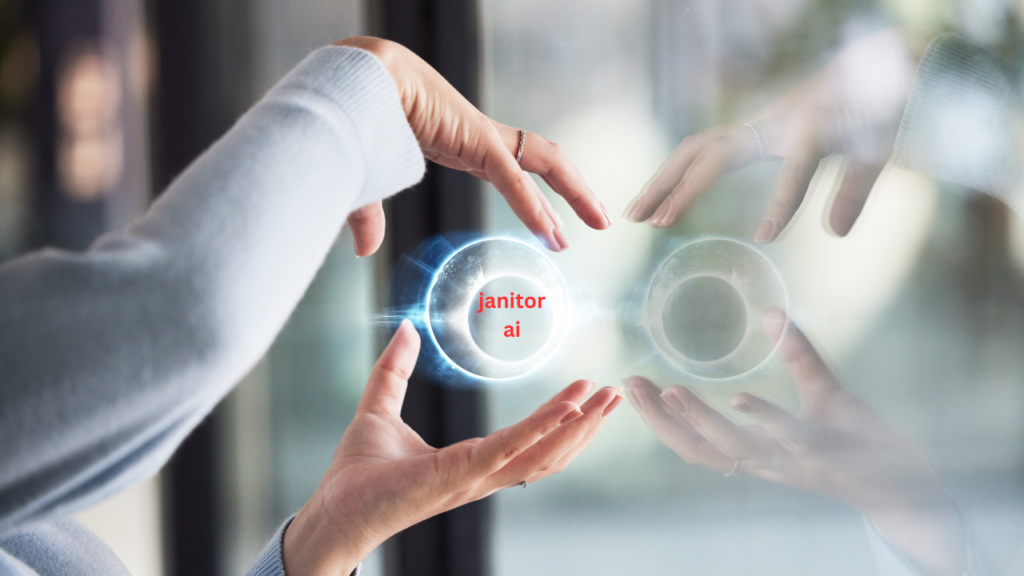In a world increasingly driven by technology, traditional practices in various industries are being revolutionized by innovations that promise greater efficiency, cost savings, and improved outcomes. One such innovation making significant strides in the field of facility management is Janitor AI—an advanced system designed to enhance the quality and efficiency of janitorial services through automation, real-time data analysis, and smart resource management.
Understanding Janitor AI
Janitor AI is an artificial intelligence (AI) system engineered to handle janitorial tasks within a facility. This technology integrates robotics, machine learning algorithms, and Internet of Things (IoT) devices to automate cleaning routines, monitor the environment, and manage resources effectively. By using data-driven insights, It can optimize maintenance schedules, ensure consistent cleanliness, and significantly reduce operational costs.
Key Features
Janitor AI comes equipped with several key features that distinguish it from traditional janitorial services:
- Automated Cleaning Capabilities: It utilizes robotic technology to perform a wide range of cleaning tasks autonomously. These robots are equipped with sensors and navigation systems that allow them to move around complex environments, identify areas that need attention, and perform tasks like vacuuming, mopping, and disinfecting surfaces. This automation reduces the need for human intervention in routine cleaning, allowing staff to focus on more complex maintenance tasks.
- Predictive Maintenance: One of the most powerful features of It is its predictive maintenance capability. The system can analyze data related to facility usage—such as foot traffic, air quality, and occupancy levels—to predict when cleaning or maintenance tasks should be performed. For example, Janitor AI can determine the best times to clean high-traffic areas or restock supplies, ensuring that the facility remains in optimal condition without unnecessary labor.
- Energy Management: It contributes to energy efficiency by optimizing the use of lighting, heating, and cooling systems based on real-time data. By analyzing patterns of facility usage, the system can adjust energy consumption to reduce waste and lower utility costs. For instance, It can automatically dim lights or adjust the temperature in unoccupied areas, resulting in significant energy savings.
- Resource Allocation: Effective resource management is another critical aspect of Janitor AI. The system can track the usage of cleaning supplies and equipment, ensuring that inventory is managed efficiently. By automating the reordering process and monitoring the condition of cleaning equipment, It helps prevent shortages and ensures that janitorial staff have the tools they need to maintain cleanliness standards.
- Real-Time Monitoring and Reporting: Janitor AI’s integration with IoT devices allows for real-time monitoring of various facility conditions. Whether it’s tracking the cleanliness of restrooms, monitoring air quality, or assessing the occupancy of different areas, the system provides facility managers with up-to-date information that enables them to make informed decisions. Alerts and detailed reports can be generated to address issues promptly, enhancing the overall quality of facility maintenance.
Advantages of Implementing Janitor AI
It offers a wide array of benefits that make it an attractive option for modern facility management:
1. Enhanced Efficiency: By automating routine cleaning tasks, It frees up human workers to focus on more critical and complex activities. This not only improves productivity but also ensures that cleaning tasks are performed consistently and to a high standard.
2. Cost Reduction: The predictive maintenance and energy management features of Janitor AI contribute to significant cost savings. By addressing maintenance needs before they escalate and reducing unnecessary energy consumption, facilities can lower their operational expenses and avoid costly repairs.
3. Superior Cleanliness: Janitor AI ensures that facilities maintain high levels of cleanliness by consistently executing cleaning routines based on data-driven insights. The ability to perform tasks without human error results in a cleaner, safer environment for facility occupants.
4. Data-Driven Decision Making: The comprehensive data collected by It allows facility managers to make strategic decisions based on real-time insights. Whether it’s adjusting cleaning schedules or optimizing resource usage, the data provided by It leads to better outcomes and more efficient operations.
5. Sustainability: With its focus on energy efficiency and waste reduction, Janitor AI supports sustainability initiatives. By minimizing energy consumption and optimizing the use of resources, facilities can reduce their environmental impact and work towards achieving their sustainability goals.

Challenges and Considerations
While the advantages of Janitor AI are clear, it’s important to consider some of the challenges that may arise during its implementation:
- Initial Investment Costs: The deployment of AI-driven systems like Janitor AI requires a significant initial investment. Facilities need to invest in the necessary infrastructure, including robotic systems, IoT devices, and software, which can be costly. However, the long-term benefits and cost savings usually make the initial investment well worth it.
- Job Displacement Concerns: The automation of janitorial tasks may raise concerns about job displacement for human workers. It is essential to approach the integration of Janitor AI as a tool that complements human efforts rather than replaces them entirely. By allowing human workers to focus on more complex tasks, It can enhance job roles rather than eliminate them.
- Maintenance and Technical Support: Like any advanced technology, It requires regular maintenance and technical support to function optimally. Facilities must be prepared to invest in ongoing support and ensure that staff are trained to manage and troubleshoot the system.
The Future of Facility Management
As technology continues to advance, Janitor AI is expected to play an increasingly important role in facility management. Future developments may include more sophisticated AI algorithms, improved robotics, and deeper integration with other smart building systems. The goal is to create a fully autonomous facility that operates efficiently with minimal human intervention while maintaining high standards of cleanliness and maintenance.
Conclusion
Janitor AI represents a transformative shift in the way facilities are managed. By automating routine tasks, optimizing energy use, and providing real-time insights, it offers a more efficient and cost-effective solution for maintaining cleanliness and order. While challenges such as initial investment and job displacement must be addressed, the long-term benefits of Janitor AI make it a valuable addition to any facility management strategy. As we move towards a future where technology plays an increasingly central role,It is poised to become a key player in the evolution of smart facilities.


